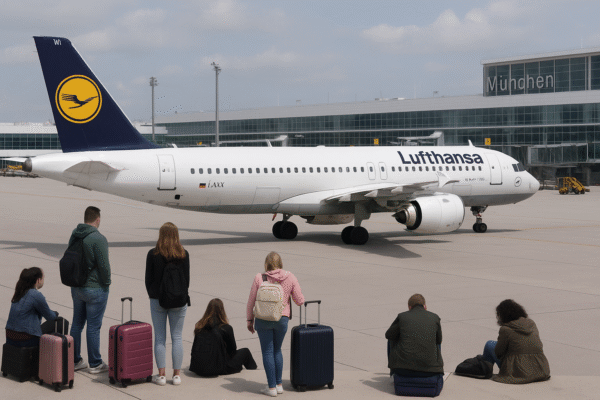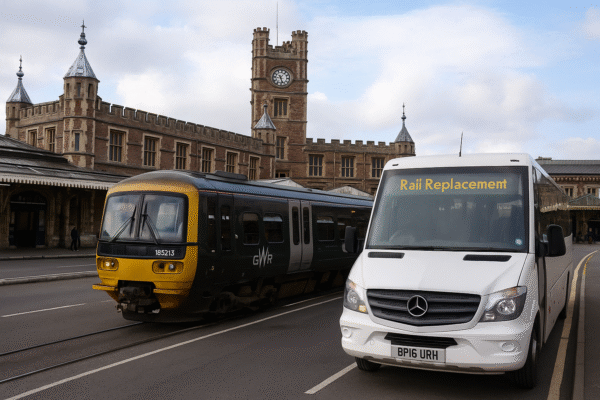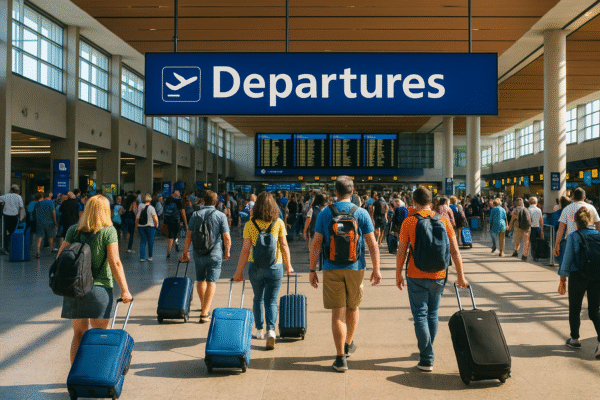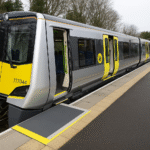Commuters and tourists traveling through Bristol faced significant disruption today as services on the Severn Beach line were halted due to fallen trees blocking the tracks. The incident, which occurred near Clifton Down, has forced the suspension of services connecting Bristol Temple Meads, Clifton Down, Avonmouth, and Severn Beach, some of the busiest stations along the route.
Network Rail confirmed that specialist teams were dispatched quickly to assess and remove the fallen trees, but passengers were advised to expect delays until at least 3:00 PM. The disruption highlights the vulnerability of rail services to seasonal weather conditions, particularly during autumn when strong winds and falling branches pose risks to train lines across the UK.
Rail Replacement Services in Operation
To minimize the impact on travelers, Great Western Railway (GWR) swiftly introduced a network of rail replacement buses covering the affected stretch. Operated by Z Cars Bristol and Zoom Cars, these buses are providing an essential link between Avonmouth, St Andrews Road, and Severn Beach, helping passengers continue their journeys while clearance work is underway.
Pickup points have been clearly designated to ensure smooth boarding:
- Avonmouth Station: Replacement buses are located on Port View Road, adjacent to Platform 2. Local buses are also available from McLaren Road.
- St Andrews Road Station: Buses stop directly at the station entrance, with local services available on Kings Weston Lane.
- Severn Beach Station: Passengers can board buses on Station Road, right at the station’s main entrance.
This arrangement ensures travelers can still access vital connections, albeit with extended journey times.
Alternative Routes and Ticketing Arrangements
GWR has made additional provisions for passengers seeking alternative travel options. Train tickets are being accepted on certain local bus services along the corridor, allowing flexibility for those wishing to bypass the disruption altogether.
Where bus companies do not accept GWR tickets, passengers have been advised to purchase standard bus tickets, retain their receipts, and submit them with their rail tickets to claim a refund. This approach ensures no passenger is left out of pocket during the period of disruption.
Support for Passengers
Recognizing the stress caused by delays, GWR has mobilized extra customer support resources at key stations. Staff are available to provide guidance on routes, ticketing, and replacement bus connections. Additionally, Customer Help Points on platforms remain operational, offering immediate assistance to those in need.
Travelers can also access support via phone through GWR’s Customer Support service, available from 6:00 AM to 11:00 PM daily. For real-time updates, passengers are encouraged to monitor National Rail Enquiries, which operates 24 hours a day.
Social media has also become a lifeline for many during disruptions. GWR’s team is actively responding to passenger queries on platforms like X and WhatsApp between 7:00 AM and 7:00 PM.
Compensation for Affected Travelers
As part of its passenger care policy, GWR has confirmed that the Delay Repay compensation scheme applies to today’s disruptions. Travelers delayed by 15 minutes or more can submit claims using both their train and replacement bus tickets as proof of journey.
This compensation mechanism is designed to reduce the financial burden on passengers and reflects GWR’s commitment to customer service even in the face of unforeseen challenges.
Long-Term Impacts and Preparedness
While today’s fallen trees represent an isolated incident, they serve as a reminder of the ongoing impact of weather on rail networks. Autumn is particularly problematic due to high winds, heavy rain, and weakened trees lining tracks. Network Rail has invested in vegetation management and preventive maintenance, but unpredictable conditions continue to pose risks.
Today’s incident underscores the importance of contingency measures like rail replacement services, communication channels, and robust compensation policies. It also highlights the need for passengers to remain flexible and stay informed during periods of disruption.
Tourism and Local Travel Considerations
The disruption is not just an inconvenience for commuters but also for tourists visiting Bristol and the Severn Beach area. The line is a popular route for day-trippers, linking the cultural heart of Bristol with the scenic Severn Estuary. Attractions around Severn Beach and Avonmouth rely on rail connections to bring visitors, and disruptions can have a ripple effect on local businesses.
Despite the inconvenience, the swift deployment of replacement buses ensures that visitors can still reach their destinations. While journey times are extended, travelers remain able to explore Bristol’s historic harbor, Clifton Suspension Bridge, and the coastal beauty of Severn Beach.
Restoration Efforts and Outlook
Network Rail teams are expected to complete clearance of the fallen trees by late afternoon, allowing normal services to resume. Crews are working intensively to reopen the line as quickly and safely as possible.
Passengers are advised to monitor official announcements from GWR and Network Rail throughout the day for updates on train times and the resumption of full services. Once restored, services will continue as scheduled, reconnecting communities and ensuring both commuters and tourists can travel without further disruption.
Conclusion: Minimizing Impact During Unexpected Challenges
The temporary suspension of services between Bristol Temple Meads and Severn Beach has tested the resilience of the rail network and the patience of passengers. Yet, with quick responses from both GWR and Network Rail, disruption has been managed through replacement buses, ticket flexibility, and enhanced customer support.
For passengers, the incident reinforces the importance of checking live travel updates and planning alternatives during periods of disruption. For the rail industry, it highlights the value of contingency planning in maintaining passenger trust.
As normal operations resume later today, the focus remains on ensuring safe travel, minimizing inconvenience, and maintaining confidence in rail as a reliable mode of transport for both commuters and tourists across the Severn Beach line.
For more travel news like this, keep reading Global Travel Wire















